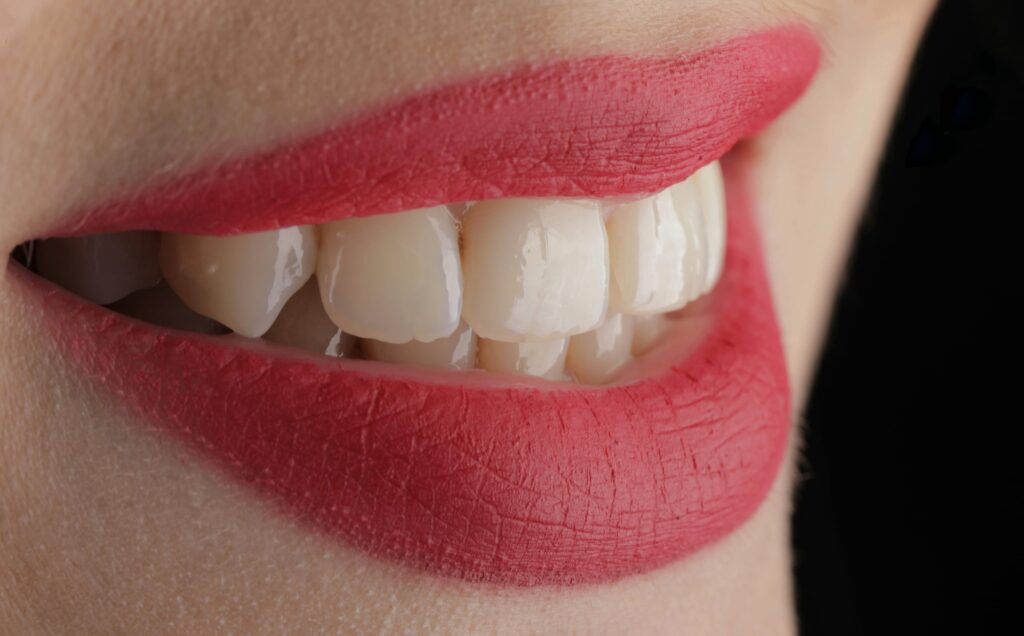25.04.2024
Tooth enamel is the hardest substance in the human body, it is the hard and shiny outer layer of the tooth crown. The crown of the tooth can be described most simply as the visible part of the tooth in the oral cavity. Its main function is to protect teeth from damage, caries and erosion. Because of its properties, the enamel protects the teeth from mechanical forces caused by chewing food, as well as from chemical compounds and acids produced in the mouth, which are found in food and drink. Tooth enamel also has an aesthetic function.
Tooth enamel is an extremely important and precious layer that protects our teeth from damage and disease. Its firm structure is vital for maintaining oral health. In order to ensure the long-term vitality of the teeth, it is necessary to understand how to protect and strengthen tooth enamel, and to apply appropriate procedures for its care.
Regular and proper oral hygiene is the basis of enamel protection. This includes brushing at least twice a day, preferably with a fluoridated toothpaste, to remove plaque and bacteria from and between the teeth. Proper brushing technique, with a soft brush and light pressure, is essential to prevent enamel damage.
Avoiding excessive consumption of sugar and acidic foods can significantly contribute to the preservation of tooth enamel. Sugars and acids encourage the growth of bacteria in the mouth that produce acids that attack enamel, which can lead to tooth decay and other problems. Therefore, it is important to limit the intake of sugar and acidic foods and replace them with healthier options such as fresh fruits, vegetables and nuts.
The use of oral care products that strengthen enamel can be a useful strategy to preserve its strength and integrity. Toothpastes and mouthwashes with high fluoride content can help remineralize the enamel and prevent it from decaying. Also, remineralizing gels or coatings can be applied to further strengthen the enamel and protect it from external factors.
A proper diet rich in nutrients such as calcium and vitamin D is essential for maintaining healthy enamel. These nutrients help build and restore enamel and strengthen teeth. Therefore, it is important to include foods such as dairy products, fish, nuts and green leafy vegetables in your diet.

Regular dental check-ups and cleanings are essential for preserving tooth enamel and oral health in general. A dentist can identify early signs of enamel damage and provide appropriate advice and treatment to prevent further deterioration.
Bruxism or bruxomania, also known as teeth grinding, can cause enamel damage due to excessive pressure on the teeth. Wearing a splint at night or similar guards recommended by a dentist can help reduce the damage caused by bruxism and protect the enamel.
Avoiding smoking and excessive alcohol consumption can also contribute to maintaining healthy enamel. Smoking can cause enamel damage and increase the risk of developing cavities and other oral diseases.
Regular water consumption can help maintain healthy enamel by helping to neutralize acidity in the mouth and wash away food debris that can contribute to tooth decay.
Using dental floss or an interdental brush daily contributes to the removal of plaque and food residues between the teeth, which can prevent the formation of caries and preserve the health of the enamel.
Finally, it is important to emphasize the importance of continuous education and awareness about oral health. Education on proper tooth and enamel care and awareness of harmful habits and their impact on oral health are key steps towards preserving healthy enamel and teeth in the long term.
By applying these additional procedures together with the already mentioned measures to protect and strengthen tooth enamel, optimal oral health and long-term vitality of the teeth can be ensured.
Dental treatments such as fissure sealing can be used to create an additional barrier that protects tooth enamel from bacteria and acids. Fissure sealing is a thin layer that is applied to molars, premolars and other teeth subject to caries in order to prevent the penetration of bacteria and food and preserve healthy enamel.
There are also special oral care products, such as toothpaste or gels, that are formulated with additional enamel-strengthening ingredients, such as calcium or phosphate. Regular use of these products can help preserve healthy enamel and promote remineralization.
In short, preserving and strengthening tooth enamel requires an integrated approach that includes regular oral hygiene, a balanced diet, the use of oral care products, as well as regular visits to the dentist. By taking a comprehensive approach, we can ensure that our enamel remains strong, resilient and healthy for many years.